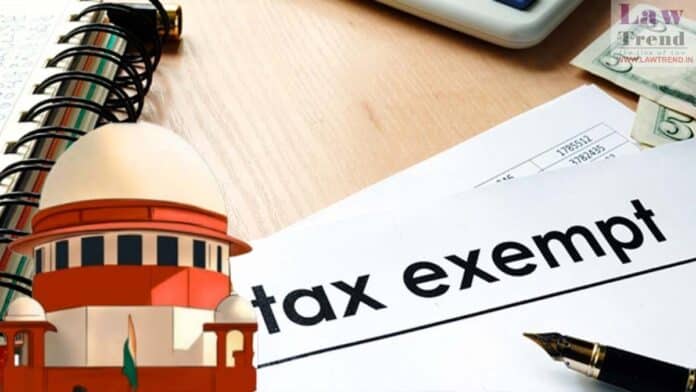The Supreme Court of India, in a significant ruling on inter-state trade, has quashed a notification issued by the Government of Rajasthan that granted a full exemption from Value Added Tax (VAT) to locally manufactured asbestos cement products. A bench comprising Justice B.V. Nagarathna and Justice K.V. Viswanathan held that the exemption, which was not
To Read More Please Subscribe to VIP Membership for Unlimited Access to All the Articles, Download Available Copies of Judgments/Order, Acess to Central/State Bare Acts, Advertisement Free Content, Access to More than 4000 Legal Drafts( Readymade Editable Formats of Suits, Petitions, Writs, Legal Notices, Divorce Petitions, 138 Notices, Bail Applications etc.) in Hindi and English.




